第94章
Besides, in all the States that did not secede, Catholics are a numerous and an important portion of the population.Their increasing numbers, wealth, and education secure them, as much as the majority may dislike their religion, a constantly increasing influence, and it is idle to leave them out in counting the future of the country.They will, in a very few years, be the best and most thoroughly educated class of the American people; and, aside from their religion, or, rather, in consequence of their religion, the most learned, enlightened, and intelligent portion of the American population; and as much as they have disliked the abolitionists, they have, in the army and elsewhere, contributed their full share to the victory the nation has won.The best things written on the controversy have been written by Catholics, and Catholics are better fitted by their religion to comprehend the real character of the American constitution than any other class of Americans, the moment they study it in the light of their own theology.The American constitution is based on that of natural society, on the solidarity of the race, and the difference between natural society and the church or Christian society is, that the one is initial and the other teleological.The law of both is the same;Catholics, as such, must resist both extremes, because each is exclusive, and whatever is exclusive or one-sided is uncatholic.
If they have been backward in their sympathy with the government, it has been through their dislike of the puritanic spirit and the humanitarian or socialistic elements they detected in the Republican party, joined with a prejudice against political and social negro equality.But their church everywhere opposes the socialistic movements of the age, all movements in behalf of barbarism, and they may always be counted on to resist the advance of the socialistic democracy.If the country has had reason to complain of some of them in the late war, it will have, in the future, far stronger reason to be grateful; not to them, indeed, for the citizen owes his life to his country, but to their religion, which has been and is the grand protectress of modern society and civilization.
>From the origin of the government there has been a tendency to the extension of suffrage, and to exclude both birth and private property as bases of political rights or franchises.This tendency has often been justified on the ground that the elective franchise is a natural right; which is not true, because the elective franchise is political power, and political power is always a civil trust, never a natural right, and the state judges for itself to whom it will or will not confide the trust; but there can be no doubt that it is a normal tendency, and in strict accordance with the constitution of American civil society, which rests on the unity of the race, and public instead of private property.All political distinctions founded on birth, race, or private wealth are anomalies in the American system, and are necessarily eliminated by its normal developments.To contend that none but property-holders may vote, or none but persons of a particular race may be enfranchised, is unamerican and contrary, to the order of civilization the New World is developing.The only qualification for the elective franchise the American system can logically insist on is that the elector belong to the territorial people--that is, be a natural-born or a naturalized citizen, be a major in full possession of his natural faculties, and unconvicted of any infamous offence.The State is free to naturalize foreigners or not, and under such restrictions as it judges proper; but, having naturalized them, it must treat them as standing on the same footing with natural-born citizens.
The naturalization question is one of great national importance.
The migration of foreigners hither has added largely to the national population, and to the national wealth and resources, but less, perhaps, to the development of patriotism, the purity of elections, or the wisdom and integrity of the government.It is impossible that there should be perfect harmony between the national territorial democracy and individuals born, brought up, and formed under a political order in many respects widely different from it; and there is no doubt that the democracy, in its objectionable sense, has been greatly strengthened by the large infusion of naturalized citizens.There can be no question that, if the laboring classes, in whom the national sentiment is usually the strongest, had been composed almost wholly of native Americans, instead of being, as they were, at least in the cities, large towns, and villages, composed almost exclusively of persons foreign born, the Government would have found far less difficulty in filling up the depleted ranks of its armies.But to leave so large a portion of the actual population as the foreign born residing in the country without the rights of citizens, would have been a far graver evil, and would, in the late struggle, have given the victory to secession.There are great national advantages derived from the migration hither of foreign labor, and if the migration be encouraged or permitted, naturalization on easy and liberal terms is the wisest, the best, and only safe policy.The children of foreign-born parents are real Americans.